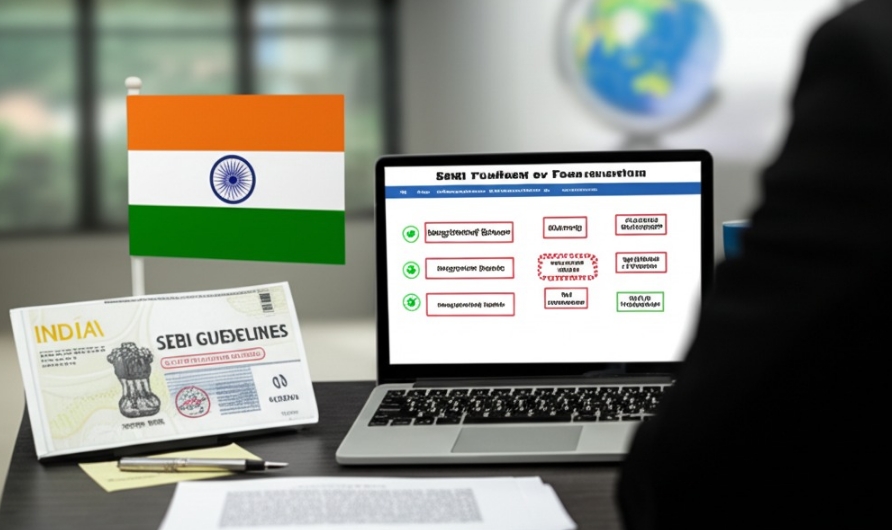Table of contents
"Punishment for Forex Trading in India" isn’t just a headline—it’s a wake-up call. Thousands of Indians, lured by flashy apps and high returns, jump into forex trading without realizing they’re stepping on a legal landmine. What seems like a side hustle can quickly turn into a legal nightmare, with penalties that burn deep—fines, frozen accounts, even jail time.
The RBI has made it crystal clear: "Trading in foreign exchange other than on recognized exchanges is illegal for Indian residents." Still, many fall into the trap, thanks to YouTube tips and WhatsApp groups selling dreams.
If you're dabbling in forex or planning to, this guide lays out what’s legal, what’s not, and how to keep your hard-earned money out of trouble. Don’t let ambition cost you your peace of mind.
Is Forex Trading Legal in India?
Legal status under FEMA guidelines
The Foreign Exchange Management Act (FEMA) governs forex trading in India—not to be confused with the U.S. Federal Emergency Management Agency. Under FEMA, Indian residents can only trade forex through approved exchanges and currency pairs authorized by the Reserve Bank of India (RBI). This legal structure ensures protection against risks tied to unauthorized forex markets and aligns with broader concerns like public safety, disaster relief, and economic stability.
Unauthorized forex trading, even via global platforms, violates FEMA provisions, leading to stiff penalties and federal action. So, if you're trying to outsmart the rules via foreign brokers, you're stepping right into the danger zone.
Difference between spot and derivative forex
Let’s keep it simple:
Spot market = instant trade at current exchange rate.
Derivative market = trade in future using contracts (futures, options, swaps).
In India, spot forex trading with international brokers is illegal for individuals. What is legal? Currency derivatives traded through SEBI-regulated platforms like NSE and BSE. These allow for hedging and risk management but with strict controls.

Who can trade forex legally?
Institutional investors like banks and hedge funds under regulatory oversight.
Retail forex traders using SEBI-approved Indian brokers trading permitted currency pairs.
Must follow rules set by regulators like CFTC, NFA, and India’s RBI.
Avoid unregistered brokers. Regulatory compliance is not just a checkbox—it’s your lifeline.
"Legal forex trading in India isn’t about making quick bucks. It’s about knowing the law and staying within it."
— R. Krishnan, SEBI Advisor
RBI Forex Trading Rules
RBI’s role in forex regulation
The Reserve Bank of India (RBI) is the gatekeeper of India's forex market. It sets the rules to protect the country’s foreign exchange reserves, manage remittances, and ensure monetary policy is not derailed by excessive speculation or illegal trading.
RBI authorizes who can deal in forex (like Authorized Dealers).
Implements KYC and AML norms to prevent misuse.
Regulates overseas investments under FEMA (Foreign Exchange Management Act).
As former RBI Governor Raghuram Rajan put it,
“India's capital controls may seem restrictive, but they’re essential to protect economic integrity and maintain financial order.”
Authorized forex dealers in India
Not everyone can legally deal in forex. RBI allows only a few Authorized Dealers (ADs) and Full-Fledged Money Changers (FFMCs):
Major banks like SBI, HDFC, ICICI.
Licensed money changers and travel card providers.
Some regulated online forex platforms.
Always check the dealer's RBI status before exchanging currency or remitting abroad.
Liberalised Remittance Scheme (LRS) rules
The Liberalised Remittance Scheme (LRS) lets Indian residents legally send up to USD 250,000 per financial year for:
Studying abroad
Travel and medical treatment
Investing or gifting funds
Supporting relatives overseas
But using LRS to speculate in foreign forex markets via unregulated brokers? That’s a big no-no. RBI strictly prohibits such usage under FEMA rules.
Permitted currency pairs for Indians
RBI allows forex trading only in specific currency pairs:
| Currency Pair | INR-Based | Cross-Currency |
|---|---|---|
| USD/INR | Yes | No |
| EUR/INR | Yes | No |
| EUR/USD | No | Yes |
| GBP/INR | Yes | No |
| JPY/INR | Yes | No |
These pairs are tradable only on recognized exchanges like NSE and BSE via registered brokers. Trading exotic pairs or crypto-forex hybrids? That’s where legal trouble begins.

Forex Trading Penalties in India
Penalty under FEMA for violations
Forex trading outside regulated channels violates FEMA (Foreign Exchange Management Act), and the penalties aren’t light.
Here’s a quick look at what’s involved:
| Type of Violation | Applicable Penalty | Governing Regulation |
|---|---|---|
| Unauthorized forex trading | Up to 3× the sum involved or ₹2L fine | FEMA Section 13(1) |
| Ongoing non-compliance | ₹5,000/day until rectified | FEMA Adjudication Process |
| Structural misuse (e.g., LRS overuse) | Seizure of assets + restrictions | FEMA + RBI Circulars |
These penalties can stack up, especially if violations continue. FEMA doesn't mess around—trading through banned platforms or exceeding LRS limits is seen as non-compliance, which can even trigger sanctions or account freezes. Think of it like skipping flood insurance in a floodplain—you might survive a drizzle, but a storm (audit) will sink you.
Criminal charges in severe cases
Now, if your forex adventures cross over into shady territory—like intentional misrepresentation or money laundering—you could face criminal charges. And that’s when things get really ugly.
Fraud or Misrepresentation
Misusing a business license or fake documentation? That's fraud, and it can lead to felony charges.
Repeat or High-Volume Offenders
Big trades through illegal channels? Say hello to a prison sentence (up to 5 years), hefty fines, and even restitution demands.
Insurance or Identity Fraud Linkages
In cases tied to insurance fraud or intentional damage, prosecutors may club forex charges with broader financial crimes.
As advocate Rahul K. Menon notes, “Illegal forex trading is no longer seen as a mere financial misstep—it’s treated like serious economic sabotage.”
Punishment Cases in India
Retail trader fined ₹10L
A retail trader was slapped with a ₹10 lakh fine for violating forex trading regulations. The Securities and Exchange Board of India (SEBI) and RBI flagged the individual for market manipulation through an overseas brokerage. The investigation revealed unauthorized trades in non-permitted currency pairs.
The trader bypassed regulatory restrictions using a VPN.
Funds were routed via UPI wallets and foreign payment gateways.
Despite being a small-scale operator, the penalty was severe to set an example.
This case reflects how even “just dabbling” in illegal trading can spiral into financial fraud allegations.
ED investigation against forex firms
The Enforcement Directorate (ED) has launched probes into several forex firms allegedly involved in money laundering and illegal remittances.
Firms used shell companies to route large volumes of foreign currency.
Violations of the Foreign Exchange Management Act (FEMA) triggered action.
Multi-layered fraud operations spanned across multiple states.
According to an ED spokesperson:
"Foreign exchange crimes aren’t just paperwork issues. They’re international financial crimes with real victims and consequences."
News report on student traders busted
In a story that went viral, a group of college students were caught using illegal trading apps for quick forex profits.
They were unaware that such platforms, though easy to use, are banned by RBI. These students had deposited funds via prepaid wallets, lured by social media ads.
Lesson? Even rookies can get burned when laws are broken — knowingly or not.
Banned Forex Platforms India
List of RBI blacklisted platforms
The Reserve Bank of India (RBI) regularly updates a list of blacklisted platforms involved in unauthorized forex trading. These platforms often operate outside Indian regulatory compliance and violate the Foreign Exchange Management Act (FEMA).
Here’s a quick look at some characteristics found in RBI warnings:
| Platform Name | Violation Type | Risk Level |
|---|---|---|
| OctaFX | Unauthorized forex access | High |
| FBS | No RBI authorization | High |
| Alpari | Cross-border trading | Medium |
These online trading platforms often lure Indian users with promises of fast returns, but they function without legal approval, posing threats of financial fraud, data theft, and investment scams. If the RBI calls it out—stay away.

Why foreign brokers are illegal
Let’s break it down. If a foreign broker isn’t registered with SEBI and doesn’t follow FEMA rules, they’re basically flying under the radar. That’s illegal in India.
They operate without regulatory oversight.
There’s no investor protection if things go sideways.
It violates cross-border transaction norms under FEMA.
Think about it: Would you send money overseas to someone with no rules, no license, and no way to be held accountable? That’s the deal with most unregistered foreign brokers. They're risky, shady, and not worth the gamble.
Legal Forex Trading Options
In an era where global investing is just a few clicks away, it is easy to overlook that in India, Forex trading is not a free-for-all. "Most of what people do online is illegal," said Mr. Rajiv Ghosh, a compliance officer with two decades of experience at a leading public sector bank. “If it looks easy and global, it is probably not legal unless it flows through Reserve Bank of India channels.”
Legal Forex trading in India is not banned—it is simply restricted and regulated. The Foreign Exchange Management Act, 1999 (FEMA) allows Indian residents to participate in currency derivatives, but only on exchanges regulated by SEBI like NSE and BSE. These include exchange-traded currency futures and options, which are legitimate instruments backed by Indian financial infrastructure.
The Liberalised Remittance Scheme (LRS) is another vital channel. Through this, individuals can remit up to USD 250,000 per year, but only via Authorised Dealer Category I Banks. It may sound like a loophole, but it is not. Every rupee remitted must be recorded, declared, and taxed.
Legal Routes for Forex Trading in India:
SEBI-regulated platforms offering INR-based currency derivatives
Exchange-traded forex instruments such as USD-INR or EUR-INR futures
Overseas remittance via LRS, routed exclusively through licensed Indian banks
"People often ask me—can I trade on apps like MetaTrader?" Rajiv laughed. "No, unless your broker is SEBI-registered and linked to a recognized Indian exchange."
According to the Reserve Bank of India’s official circulars, any margin-based, leveraged forex trading with foreign brokers is a direct violation of FEMA. Public advisories warn retail investors to avoid such platforms.
The distinction is stark—legal forex trading in India is organized, regulated, and bank-traceable. Anything beyond that is a regulatory landmine.
How to Avoid Forex Trading Penalties?

Use only RBI-approved brokers
Choosing authorized brokers regulated by the RBI is your first line of defense. Always check if the broker has the right license and is on the RBI’s approved list before investing. This keeps your money within the legal and safe bounds of the stock market and banking system. Don't fall for shady apps that promise 10x returns.
Quick checklist to verify a broker:
RBI license or SEBI registration
Official website listed on RBI portal
Indian-based operations with legal presence
Avoid high-return forex schemes
If it sounds too good to be true—it is. These high-return forex schemes are often scams or fraudulent platforms masked as investment opportunities. They target people looking to make quick cash in foreign exchange.
Hey, if someone’s promising 50% profit a week from currency trading, that’s not a side hustle—it’s a trap. Avoid.
Do not exceed LRS limits
Under the Liberalised Remittance Scheme (LRS), Indians can legally send up to USD 250,000 per financial year abroad. This cap applies to all foreign exchange activities, including investment and remittance.
| Purpose | Max Allowable (USD) | Regulation Body |
|---|---|---|
| Overseas Education | 250,000 | RBI |
| Foreign Investments | 250,000 | RBI |
| Gift Remittance | 250,000 | RBI |
Going beyond that? You might trigger scrutiny under India’s foreign exchange laws.
Consult SEBI-licensed advisors
Need solid advice? Talk to an expert. SEBI-licensed investment advisors are regulated by the Securities and Exchange Board of India, and they're legally qualified to help you plan, invest, and avoid compliance pitfalls.
“A licensed advisor helps you invest smart, not just fast. And they’re legally bound to act in your best interest,” — Rajeev Nair, Certified Financial Planner.
They can guide you in everything from choosing legitimate platforms to aligning your strategy with financial regulations.
Conclusion
Getting into forex trading without knowing the rules is like driving blindfolded — you’ll crash before you even realize the mistake. Many folks get lured by flashy platforms and end up paying fines that burn a hole in their pockets.
As RBI clearly warns: “Dealing in unauthorized forex trading platforms is a punishable offence.” Stick to the legal lane — trade smart, not sorry.
The penalty can be severe. Under the Foreign Exchange Management Act (FEMA), individuals found guilty may face:
A monetary penalty up to ₹10,000 for each violation
Additional fines of ₹2,000 per day for continuing contraventions
Confiscation of funds involved in the transaction
No, Indian residents are not legally permitted to trade on foreign-based forex platforms that are not registered with SEBI or approved by the RBI.
Only platforms that facilitate trading through recognized exchanges such as NSE and BSE are legal. These platforms allow trading in currency derivatives, not spot forex.
Not typically, but repeated or large-scale violations may trigger more serious consequences. Most actions are treated as civil offenses under FEMA, but the government can escalate them in serious cases.
You can trade legally by:
Using SEBI-regulated brokers like Zerodha or ICICI Direct
Trading currency pairs listed on Indian exchanges (like USD-INR)
Avoiding overseas brokers without RBI approval
Yes, profits from forex trading are considered income from business or speculative activity and are taxable under Indian Income Tax laws.
Legal forex pairs are limited to those involving the Indian Rupee. These include:
Any pair that does not include INR is not allowed for retail traders in India.
USD/INR
EUR/INR
GBP/INR
JPY/INR


